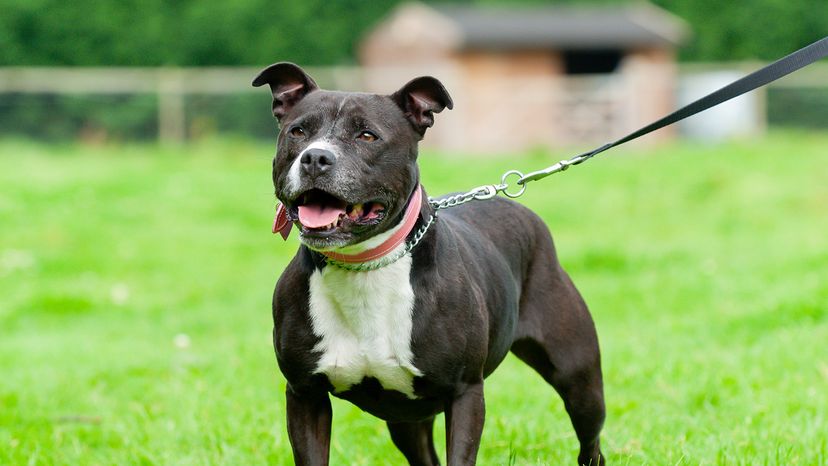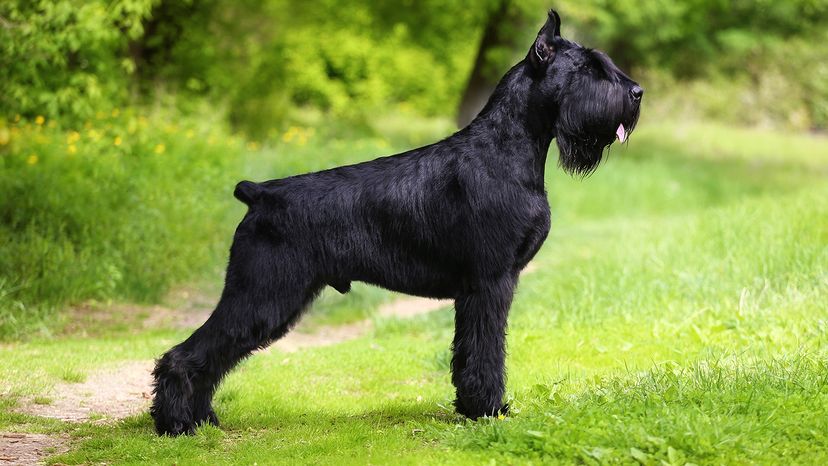Some dogs were born to guard. With sharp instincts, bold temperaments, and deep loyalty, the most protective dog breeds offer both companionship and security.
Many people believe they need to choose between having a loving family pet or a protective guard dog. The truth is, with the right breed selection, proper training, and correct approach to raising them, you can absolutely have both in one furry package!
As someone who’s worked with dogs for years, I’ve seen firsthand how protection dogs can be wonderful family companions. Let’s dive into this topic and explore how you can have a dog that both protects your home and cuddles with your kids on the couch.
The Common Misconception
There’s a persistent myth that guard dogs must be aggressive unsociable animals that live outside and can’t be trusted around family members. Media portrayals often show two extremes
- The loving family pet who just wants belly rubs
- The snarling, vicious “junkyard dog” ready to attack strangers
This black-and-white view simply doesn’t reflect reality. In truth, a well-trained protection dog can be just as affectionate and fun as any other dog, while also providing an extra layer of security for your family.
What Makes a Good Family Guard Dog?
The best family guard dogs possess a balanced combination of traits:
- Natural protective instincts
- Intelligence and trainability
- Confidence without aggression
- Loyalty to family members
- Good temperament with children
- Ability to discern genuine threats from normal situations
What’s interesting is that many of the qualities that make excellent guard dogs also make them wonderful family companions. Traits like intelligence, loyalty, and confidence are desirable in any family pet!
Top Guard Dog Breeds That Excel as Family Pets
Let’s look at some of the breeds that naturally balance protection with family-friendly temperaments:
1. German Shepherd
German Shepherds are perhaps the most versatile protection dogs. Originally bred as herders they’re now trusted in police, military and rescue work while also being excellent family companions.
Why they’re great guard dogs:
- Naturally protective and confident
- Extremely intelligent and trainable
- Alert and aware of their surroundings
- Impressive physical presence
Why they’re great family pets:
- Bond deeply with their families, especially children
- Loyal and affectionate
- Eager to please and participate in family activities
- Versatile enough for hiking, playing, or just lounging at home
German Shepherds do need regular exercise and mental stimulation to stay balanced, making them ideal for active families.
2. Rottweiler
Despite their intimidating appearance, well-trained Rottweilers are often gentle giants with their families.
Why they’re great guard dogs:
- Natural guarding instincts
- Powerful physical presence that deters intruders
- Confident and fearless when needed
- Quick to notice changes in their environment
Why they’re great family pets:
- Incredibly loyal and affectionate with family
- Often patient with children
- Intelligent and trainable
- Calm inside the home when properly exercised
Rottweilers need proper socialization from puppyhood and consistent training throughout their lives.
3. Bullmastiff
Originally bred to help gamekeepers catch poachers, Bullmastiffs are known for their calm confidence.
Why they’re great guard dogs:
- Physically imposing size deters threats
- Naturally protective of their territory and family
- Strong enough to block or pin intruders
- Alert but quiet (they don’t bark unnecessarily)
Why they’re great family pets:
- Gentle and patient with family members
- Relatively low-energy indoors
- Deeply bonded to their people
- Generally good with children
Despite their size, Bullmastiffs don’t need excessive exercise, just regular walks and family time.
4. Doberman Pinscher
Dobermans combine athleticism, intelligence, and loyalty, making them excellent protectors and companions.
Why they’re great guard dogs:
- Alertness and quick reaction time
- Athletic build and impressive speed
- Intimidating appearance
- Natural protective instincts
Why they’re great family pets:
- Extremely loyal to their families
- Intelligent and highly trainable
- Affectionate with family members
- Energetic playmates for active children
Dobermans thrive with mental challenges and consistent training. They’re sensitive dogs that form strong bonds with their people.
5. Belgian Malinois
Popular in police and military work, the Belgian Malinois is gaining popularity as a family protector.
Why they’re great guard dogs:
- Extremely intelligent and easy to train
- Natural protective instincts
- Fearless and agile
- Excellent working drive
Why they’re great family pets:
- Loyal and people-oriented
- Bond deeply with their families
- Adaptable to different environments
- Travel well with the family
Belgian Malinois are high-energy dogs that need both physical exercise and mental challenges daily.
The Importance of Proper Training
Here’s where many people go wrong: Any dog, regardless of breed, needs proper training to be both a good guard dog and a good family pet. Without it, you could end up with either an ineffective guardian or a dangerous animal.
Training should start young, ideally when the dog is still a puppy. By six weeks old, dogs are already learning behaviors they’ll carry into adulthood.
A well-trained protection dog should know:
- Basic obedience commands
- When to alert vs. when to stand down
- How to recognize family members and regular visitors
- Appropriate vs. inappropriate times to be protective
Professional training is often worth the investment, especially for protection dogs. Trainers can help establish boundaries and ensure your dog knows when protection is needed versus when to be relaxed and friendly.
Establishing Dominance and Leadership
Dogs are pack animals that respond to clear leadership. If your dog doesn’t see you as the leader, behavioral issues can arise, which is particularly problematic with protection breeds.
Some simple ways to establish yourself as the pack leader include:
- Maintaining eye contact until the dog looks away
- Entering rooms before your dog
- Controlling feeding times and walks
- Consistently correcting unwanted behavior
- Rewarding good behavior
When your dog recognizes you as the leader, they’re more likely to follow your commands and know when protection is appropriate versus unnecessary.
Socialization: The Secret Ingredient
Proper socialization is absolutely crucial for a guard dog that will also be a family pet. Socialization involves exposing your dog to different:
- People (of various ages, appearances, and behaviors)
- Animals
- Environments
- Sounds
- Situations
A well-socialized guard dog learns to distinguish between normal situations and genuine threats. They won’t react aggressively to the mail carrier or your child’s friends, but they’ll still alert you to potential dangers.
Common Questions About Family Guard Dogs
Will my guard dog be safe around my children?
With proper training and socialization, yes! Many protection dog breeds are naturally gentle with family members, especially children. However, no dog should ever be left unsupervised with very young children, regardless of breed or training.
Can a guard dog distinguish between welcome guests and intruders?
Yes, with proper training. Protection dogs can learn to recognize regular visitors and understand when you welcome someone into your home. The key is consistent training and clear signals from you about who is welcome.
Do guard dogs need to live outside?
Absolutely not! In fact, protection dogs generally perform better when they live inside with their families. This strengthens their bond with family members and gives them a better understanding of normal household patterns, making it easier to detect unusual situations.
How much exercise do guard dog breeds need?
This varies by breed, but most protection breeds are active, intelligent dogs that need regular exercise. German Shepherds, Dobermans, and Belgian Malinois need significant daily exercise, while Bullmastiffs and Rottweilers are somewhat less demanding.
My Personal Experience
I’ve owned several protection breeds over the years, including a Rottweiler who was both the most intimidating and the most gentle dog I’ve ever had. Strangers would cross the street to avoid her, yet she would let my toddler nephew climb all over her without complaint.
What made the difference was consistent training from puppyhood, clear boundaries, and lots of positive socialization experiences. She knew when to be protective (like when someone approached our property at night) and when to be friendly (like when we had guests over).
The Bottom Line
Yes, a guard dog can absolutely be a wonderful family pet! In many ways, the traits that make dogs good protectors—intelligence, loyalty, confidence—are the same traits that make them excellent companions.
The key factors for success are:
- Choosing the right breed for your family’s lifestyle
- Consistent training from an early age
- Proper socialization with people and other animals
- Clear leadership from you
- Regular exercise and mental stimulation
With these elements in place, you can enjoy both the protection and the companionship of a dog that’s truly “man’s best friend” in every sense of the phrase.
Remember, a guard dog isn’t defined by aggression but by intelligence, discernment, and loyalty. The same dog that might look intimidating to a potential intruder can be the gentle, loving companion that your children cuddle with on movie night.
So if you’re considering adding a protective canine to your family, know that you don’t have to choose between safety and affection. With the right approach, you can have both in one amazing four-legged package!

Staffordshire Bull Terrier
Though small compared to some more popular guard dog breeds, the Staffordshire bull terrier is courageous, loyal, and incredibly people-friendly.
This dog’s natural protective instincts make it a good fit for families with small children. Early training and socialization help balance its energy and ensure it fits into family life.
Giant Schnauzer
Dont let the furry breed fool you. Giant Schnauzers are energetic, strong-willed, and among the best guard dog breeds for experienced owners. With a thick coat and loud bark, this breed serves as a family guard dog and a watchdog. Proper obedience training is essential to manage their protective nature.


